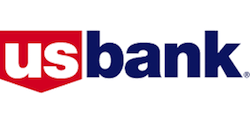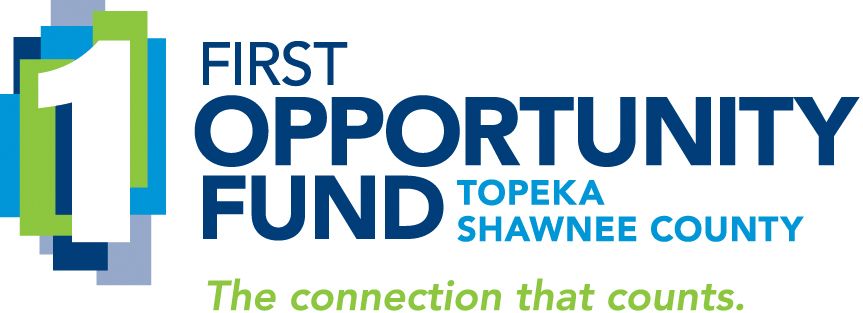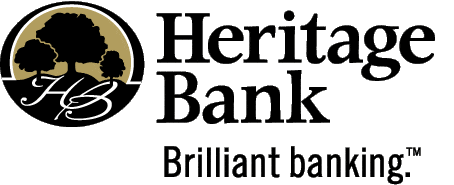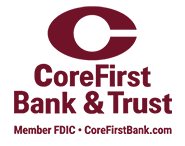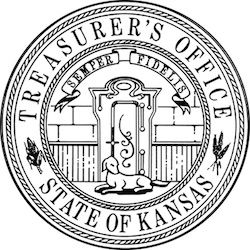
Social media channels are overflowing with advice from influencers on everything from fitness to fashion, travel to technology—and more. Financial influencers have become a significant presence on the radar for many millennials. But how much do they really trust these online personalities when it comes to their money?
A recent survey with the Banktastic National Millennial Advisory Board sheds light on this growing trend and what role it plays in their financial decisions.
The influencer landscape
Approximately 40 percent of our millennial board respondents say they follow financial influencers or bloggers, while over 50 percent do not. Of those who do follow financial influencers, Instagram reigns supreme as the platform of choice, with over two thirds of followers using it to connect with money experts (either self-proclaimed or legitimate). TikTok and YouTube round out the top three platforms for money advice.
Our board’s most followed names in the financial influencer space include:
- Her First 100K
- Your Rich BFF
- Money with Katie
- Dave Ramsey
Millennials share both trust and skepticism of influencers
While many millennials follow or engage with financial influencers, there's a notable level of caution in their approach. Only slightly over one third of respondents somewhat or highly trust the advice given by these online personalities.
Respondents emphasized the importance of doing their own research and not blindly following advice.
“Some of them are great but there are also a lot of scammers and fraudsters out there hucking crypto and looking to make a quick buck,” said one board member.
Another agreed saying, “I think that financial influencers can be great, but that people need to get their information from multiple sources since these influencers are often working in their own self-interest with referral links, etc.”
This skepticism is reflected in their likelihood to act on influencer recommendations:
- One fourth are likely or very likely to use a financial product endorsed by an influencer they follow.
“I love the markets and follow bloggers/analysts to see different perspectives and gather information. I would never blindly follow purchase or take trades based on their recommendations,” said one board member.
“Tori helped me see the value of building an emergency fund, using HYSAs and preparing to invest,” said another board member.
And they question what they see. “Influencers make me question my financial journey because I can never comprehend how they afford the things they do. That being said, I don’t follow any financial influencers.”
- Only 20 percent are likely or very likely to apply for a specific credit card recommended by a trusted influencer, though when related to travel, they’re appealing.
One board member “…applied for multiple credit cards and followed their ‘hacks’ for travel and finance.” Another got “Chase Sapphire Preferred and the Capital One Venture X credit cards based on reviews from The Points Guy.”

Influencer impact on millennial financial journeys
Many respondents reported positive impacts from following financial influencers:
- Increased financial literacy and awareness
- Motivation to save, invest and budget
- Learning about new financial products and strategies
“I feel like Caleb Hammer has helped me positively because some of my spending habits will be highlighted and berated and it’s a good reality check that I don’t need to live so lavishly,” stated one advisory board member.
However, concerns were also raised:
- Skepticism about sponsored content and potential conflicts of interest
- Worry about the qualifications of some influencers
- Risk of following advice not tailored to individual circumstances
One respondent noted, “I think they are helpful to those who have similar situations as them,” highlighting the importance of finding relatable content.
Beyond influencers: trusted sources
While influencers play a role in financial education, millennials in our survey still rely heavily on traditional sources of advice. Of all survey respondents—whether they trust influencers or not—the most trusted sources:
- Family and friends (83 percent)
- Financial advisors (57 percent)
- Financial websites for doing their own research (46 percent)
It is interesting to note that of those who do not trust influencers, financial advisors come in at 65 percent. But of those who do trust influencers, financial advisors come in at 34 percent.
“I have a financial advisor and very savvy parents so I’ve not needed financial advice from the internet before,” said one advisory board member.
The future of financial influencing
As the financial influencer space continues to evolve, there’s a clear need for transparency and accountability.
One respondent suggested, “I think this is a great area but needs a bit more regulation. Some of these people have zero financial background and although information is power, it can also be dangerous if it’s not disseminated in the proper way.”
Key takeaways from millennials for banks and credit unions
Millennials have a desire for authenticity. Respondents said they value genuine and transparent communication from influencers.
For banks and credit unions aiming to connect with these millennial customers and prospects, these findings offer crucial guidance:
Prioritize trust and credibility
In an age of skepticism, financial institutions must build trust through expertise, transparency and a proven track record.
Provide accessible education—where they want it
Millennials seek clear, concise, and easily digestible financial information. It’s important for this information to appear on the financial institution’s website for those who “do their own research,” it should also be in the social channels millennials are most using to reach people when they’re scrolling with edu-tainment. Prioritize with a strong presence on Instagram, then add TikTok and YouTube as resources allow.
“I like the ones who give bite-size advice that’s easy to follow and not too much jargon.”
Be authentic and relatable
Connect with millennials on a human level, acknowledging their financial challenges and aspirations. Social media content can be less “produced” than TV spots or other communications in different media channels. It should look and sound real and personal.
Empower with verification tools
Provide resources that enable individuals to verify information and make informed decisions independently. These can also be shared on the institution’s social media channels and website, along with the online banking app.
Offer personalized solutions
Recognize the diverse financial needs of millennials and tailor advice and products accordingly. Offer quizzes and allow customers to self-select to find the information most relevant to them.
Approach influencer marketing strategically
If engaging influencers to promote the bank, vet them carefully. Prioritize accurate educational content, authenticity and transparency. It is also important ensure they’re not also working for a competing financial institution, so make sure the contract covers this.
Brands can benefit from either an influencer partnership or creating their own online personality that delivers reliable, relatable and valuable information in the channels where prospects are consuming content.
By understanding millennial attitudes towards financial influencers and addressing their concerns, financial brands can build stronger relationships and effectively serve this important demographic.
For more insights about millennials and their use of social media, read our article, Social media pro tips for millennials and Gen Z.
If you'd like help with marketing to millennials for your bank or credit union, contact Martha Bartlett Piland, CFMP at 785-969-6203 or by
photo credits: neon sign by Prateek Katyal and outdoor sign by Yoav Hornung on Unsplash





